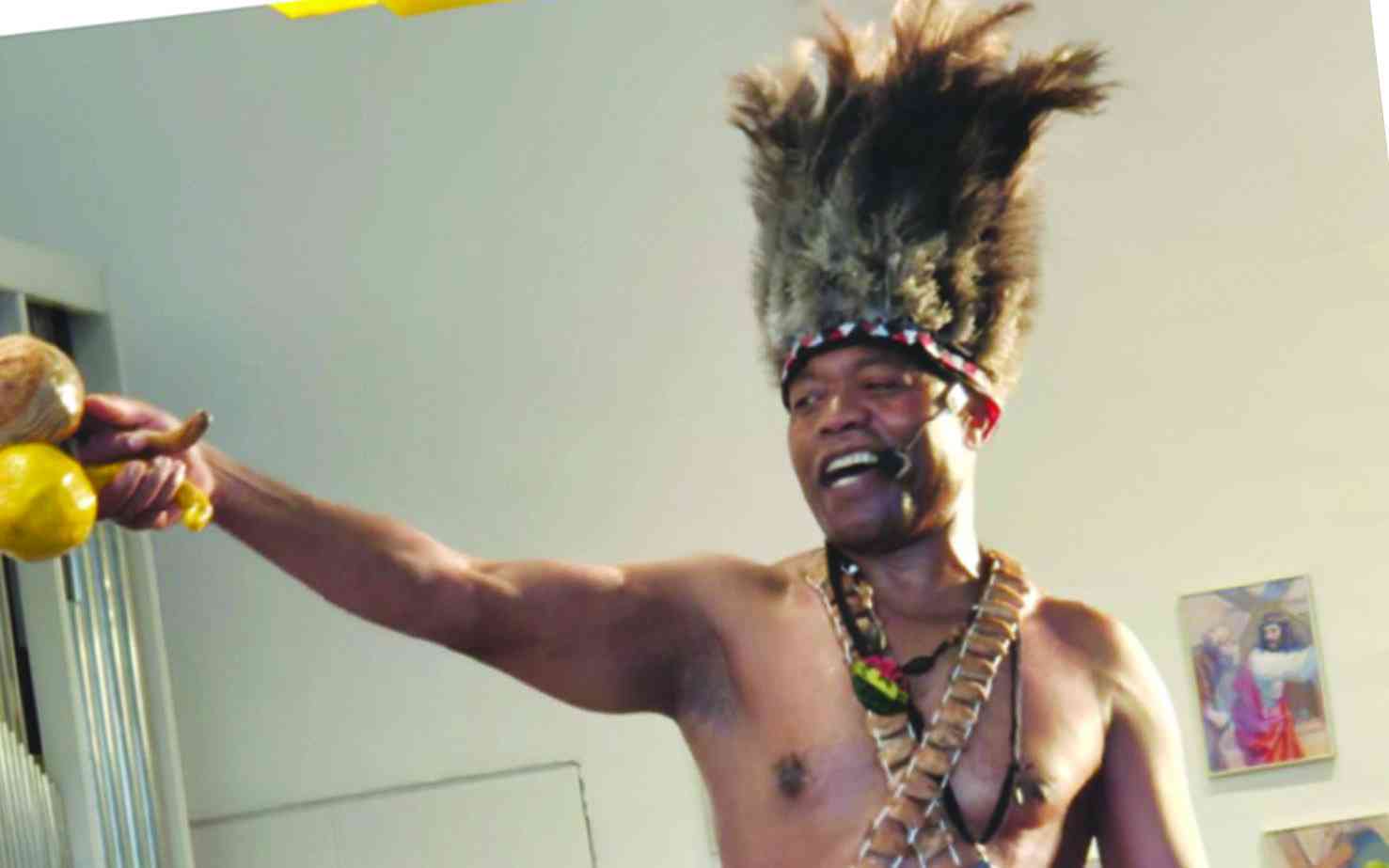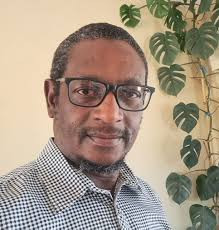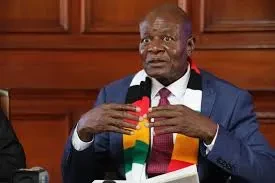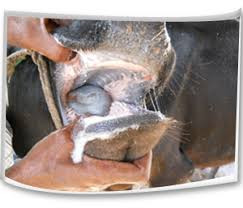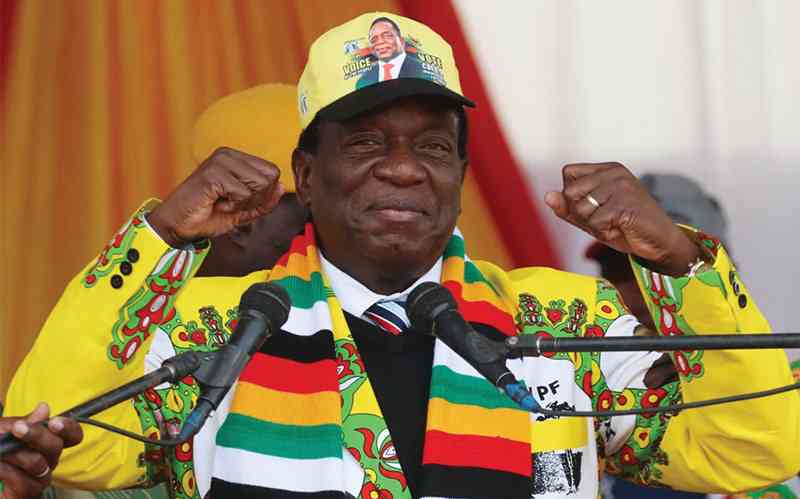
THE history of Zimbabwe is etched on the fateful events of November 14 and 21, 2017 an eventful week that saw soldiers roll their tanks onto the streets of Harare, culminating in the forced resignation of Robert Gabriel Mugabe as the country’s President.
The fateful evening of November 14 when convoys of army vehicles rumbled through Harare, leading to the takeover of the national broadcaster and the peaceful demonstration by millions of Zimbabweans against Mugabe is well documented.
Tuesday, November 21 heralded a new era for the southern African nation when Mugabe grudgingly resigned, paving way for Emmerson Mnangagwa to return to Zimbabwe from exile the following day to be welcome by thousands of praise-singing Zanu PF supporters at the party headquarters in Harare.
Mnangagwa immediately declared that he would be a ‘listening President’ who would unshackle the people of Zimbabwe from the yoke of poverty.
When Mnangagwa was sworn in as President, he was received by all and sundry — even the leading opposition MDC-T leader Morgan Tsvangirai graced the occasion that was attended by leaders from the whole Southern African Development Community region.
Mnangagwa was seen as the saviour of the Zimbabwean people when he assumed power.
His catch phrase back then was: “Voice of the people is the voice of God” and later joined by the declaration that “Zimbabwe is open for business”.
However, five years after Mnangagwa grabbed power in a military-backed takeover, Zimbabweans have become so divided on how he has performed after the events of November 2017.
- NoViolet Bulawayo’s new novel is an instant Zimbabwean classic
- Jah Prayzah, Zanu PF rekindles ‘lost love’
- Bank workers appeal to Ncube for tax relief
- Indosakusa marks 21-year anniversary milestone
Keep Reading
Even up to this very day, Zimbabweans are still divided on whether Mnangagwa came to power through a “coup” or a “transition”.
However, many are arguing bitterly over his five-year leadership amid misgivings and general disdain from the majority impoverished citizens.
But like any other community, there are staunch Zanu PF functionaries who believe Mnangagwa has done exceptionally well considering the doldrums that Zimbabwe was in.
Political analysts have also painted a picture of a divided nation, reflecting how polarised Zimbabwe has grown to be since Mnangagwa assumed power.
In an interview with NewsDay, political analyst Effie Ncube described the five years Mnangagwa has been in power as a “complete political and economic disaster”.
“For example, during his tenure, the triple evils of poverty, hunger and unemployment have risen exponentially driving more and more people into misery,” he charges.
“Human rights violations and the erosion of democratic principles and the rule of law have worsened. Willingness to hold free and fair elections has completely crumbled. Corruption remains rampant and Zimbabwe ranks very low in critical global indices such as the rule of law, transparency, and ease of doing business. Crucial democratic reforms have been ignored.”
Ncube said Zimbabwe was more divided than it was five years ago.
“Instead of reaching out to political opponents, the President has demonstrated serious paranoia, something that has hamstrung his ability to bring the country together. Put simply, the President has failed on the economic and political reform agenda he set himself when he came to power,” he argued.
University of London professor of politics Stephen Chan said Mnangagwa’s tenure in office had been very unsuccessful.
“The economy is still unstable, and the outside world is still not convinced that a fair playing field is assured for the next elections and for democratic expression before then,” he said.
Chan also further argued that Mnangagwa's foreign policy has been very lacklustre.
“He has, in fact, not really reached out to anyone apart from China. It cannot be said that Zimbabwe has gained any new friends during the President’s time in office,” he said.
Chan said although Mugabe could be very authoritarian, he had greater pragmatism.
“When he (Mugabe) realised he had no choice, but to deal in government with Tsvangirai, he did so, sometimes even with a note of grace and certainly with good manners at least in public. Mnangagwa has not shown such pragmatism and grace towards (CCC leader Nelson) Chamisa,” he said.
He said Mnangagwa had failed to deliver on his promises, adding that Zimbabwe would continue to wallow in the doldrums of poverty without the necessary infrastructure to drive investment and development.
“The hollowest mantra has been ‘open for business’. If he had surrounded himself with business advisers, Mnangagwa would have known that no one comes to invest based on a sound bite.
“The infrastructure for serious investment is not there. Even the Chinese privately complain about having to provide the entire infrastructure themselves. And blaming sanctions increasingly sounds like a worn out gramophone record,” he said.
Political and social commentator Alexander Rusero, however, noted that five years is relatively a small period in politics.
“It would be very impractical to draw a comparative balance sheet of the Mugabe-led government of 37 years and the ED-led government of five years,” he opined. “Thus a considerable judgment would require more time. When you assume power in the manner Mnangagwa did, the first immediate project would be the consolidation of power at all costs.
“Mnangagwa’s power base, emerging from the shadows of being militarily catapulted to power, has strengthened and emerged stronger. He is surely currently in charge.”
He, however, argued that the change of guard from Mugabe to Mnangagwa has largely been characterised by continuities more than discontinuities.
“There some takeaways, however, notably issues to do with the road rehabilitation programme and some infrastructure development, you can't take that away from him. However the ugly guerrilla tactics of Zanu still remain — abductions, narrowing of democratic space as well as binary characterisation of citizens as enemies or friends,” Rusero further argued, noting that there would be a period when Mnangagwa would reach out to members of the vanquished G40 cabal.
“There may be some behind-the-scenes negotiations already taking place, I haven't seen much trading and scolding of late between the groups, meaning something could be happening,” he said.
Rusero expressed disappointment over Mnangagwa’s shortcomings, especially in fulfilling promises made when he took over from Mugabe.
“It is one thing to make promises; it is another to fulfil them. There is something magical about microphones which makes those speaking through them becoming excitable. We risk mistaking political statements pronounced through microphones at rallies as sound policy principles deserving scrutiny for their fulfilment or not,” he added.
Zanu PF activitist and international law expert Masimba Mavaza said comparing Zimbabwe’s political and economic reform efforts after Mugabe, Mnangagwa had done the “work of hundred years in one day”.
“The country's trajectory over the next five years will be a wonder only found in a comic book. The developments executed by Mnangagwa are breath taking. People of Zimbabwe are asking: Where have you been all along? President Mnangagwa has deployed flowery and real reforms and provided a great movement towards genuine political and economic reforms,” he said.
Mavaza contended that political repression had disappeared in Zimbabwe, while the economy continues to grow.
“Mnangagwa has helped the country recover from years of mismanagement, corruption and State violence, international actors — including the United States have acknowledged the strides made by ED in a co-ordinated fashion to implement genuine political, economic, and security reforms,” he said.
Mavaza further argued that the country will continue in its economic rise in the best interest of the people of Zimbabwe.
“The greatest social achievement is removing Zimbabwe from a path of political polarisation, protests, political violence at the hands of the State, and economic deterioration.”
He hailed Mnangagwa’s efforts at spearheading developmental programmes without loans from the outside world.
“Mnangagwa’s re-engagement drive has borne good results with him being invited to the United Kingdom, Davos and several other countries,” he said, adding that the President’s anti-corruption drive had also been successful.
“Tangible steps have been taken towards reconfiguring Zimbabwe's economic and political arenas.”
For Mavaza, Mnangagwa fulfilled most of his promises and people who have invested their trust in him are not disappointed.
“This is exhibited by all civic groups stampeding to be associated with ED and what he believes in. Groups like MenBelievED, YoungWomen4ED, Varakashi4ED and Vapostori4ED among several others. Never in our lifetime has a leader become so popular,” he said.
Noting such achievements as the economic surplus government has recorded since Mnangagwa’s ascendancy to power and the re-introduction of the Zimbabwe dollar to curb inflation, he added: “Zimbabwe has seen stabilisation in fuel, food and electricity provision. Mnangagwa has shown that he is a good leader and he deserves your vote.”
As Zimbabwe prepares for yet another general election next year, the jury is still out assessing how Mnangagwa has performed in the highest office and whether people should continue investing their trust in him.


